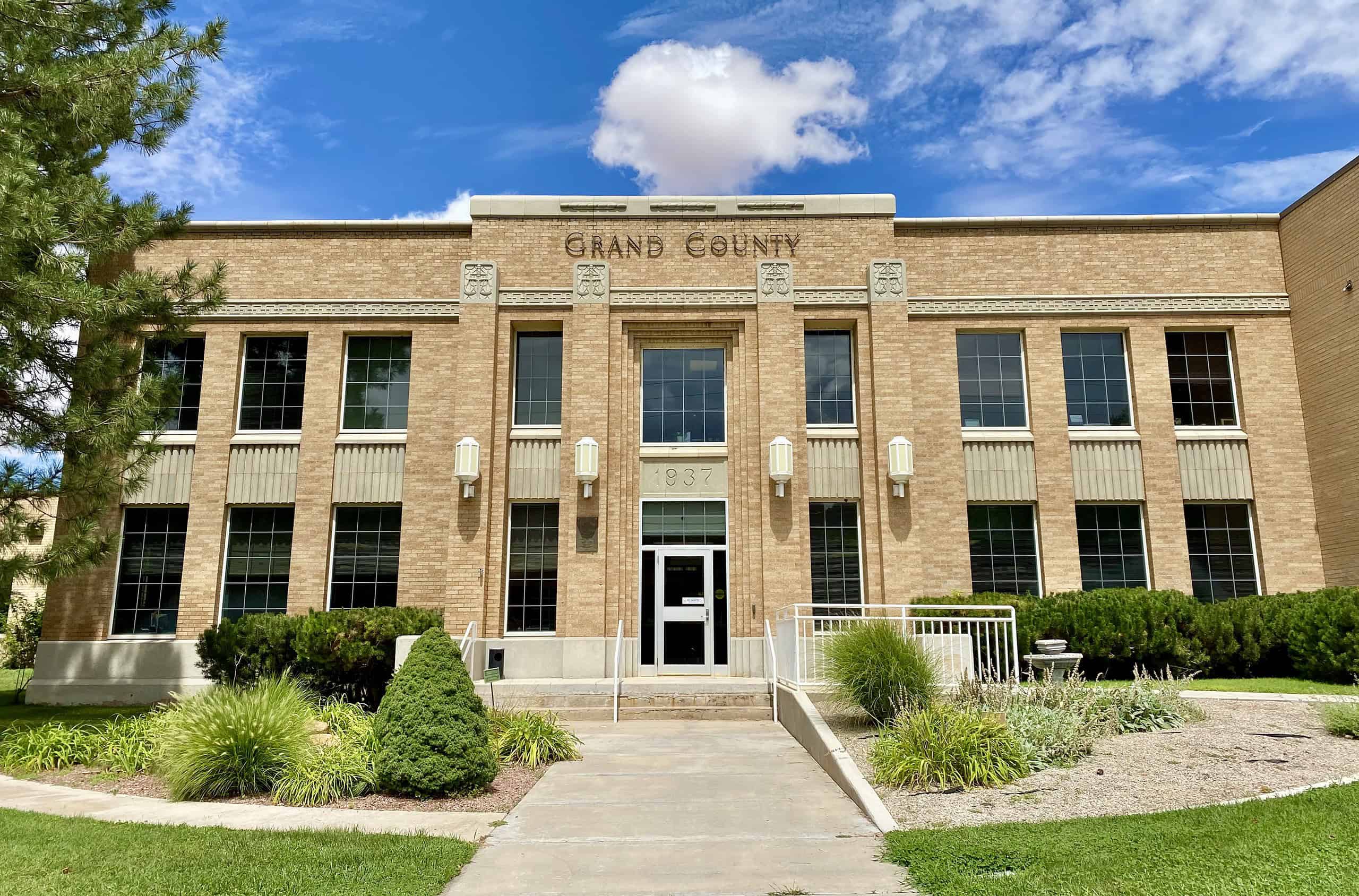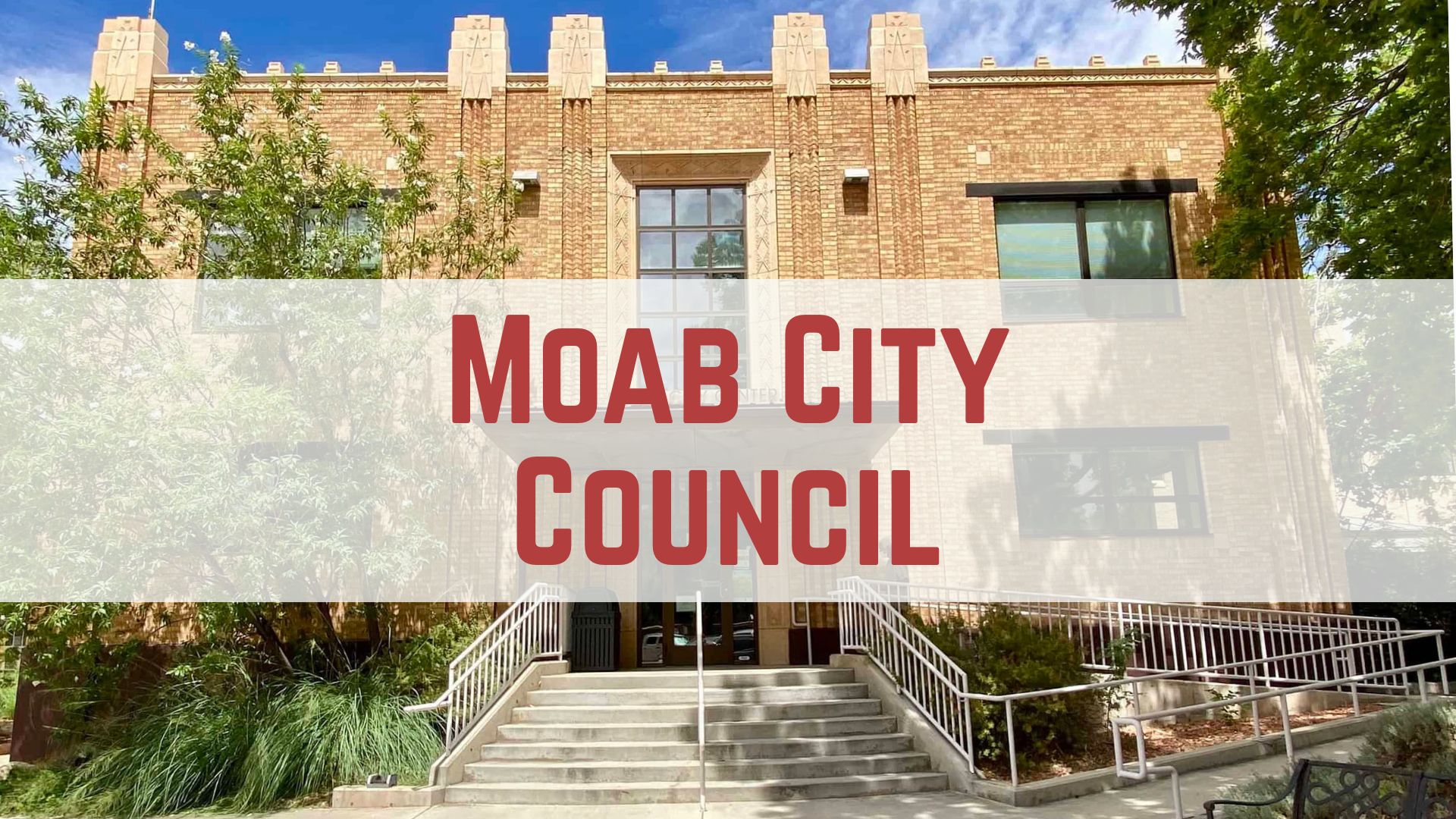Some information may be outdated.
Grand County Commissioners were dismayed last week by a presentation on House Bill 180, which imposes education requirements on OHV operators: Utah State Parks representative Chris Nelson said proposed changes to the bill would exempt street-legal OHVs from the new requirement. However, Utah Division of Outdoor Recreation OHV Program Manager Chase Pili said that information was incorrect.
“There was just some miscommunication and misinformation presented,” Pili said. The only proposed change to HB 180, he said, is an exemption for snowmobiles from a new license plate requirement in the bill.
“No changes are being made in regard to the street-legal OHVs,” said Div. of Outdoor Recreation Public Relations Manager Austin Isbell in an email to the Moab Sun News.
Confusion
As written, House Bill 180 mandates that all OHV operators take an education course and pass a test based on the course, among other requirements. Many in Grand County welcomed the bill as a step forward in addressing tensions surrounding OHV use in Moab’s residential areas. The Moab Sun News reported last week on a workshop held before the commission’s regular meeting to discuss the bill, which was passed in the 2022 general session of the Utah State Legislature. In that workshop, Nelson communicated his understanding that proposed changes to the bill, to be considered in the 2023 general session, would exempt street-legal OHVs from the education requirement.
“What I’m hearing you say today is, if you have a street-legal OHV, you don’t have to take this test?” asked Commissioner Mary McGann at the workshop.
“Correct,” Nelson said. “You have to have a driver’s license.”
Pili said the confusion may have arisen from vehicle registration categories. The Department of Motor Vehicles has a category for Off Highway Vehicles, and another category for street-legal OHVs, but both are considered OHVs and both will be required to complete the state’s education module and exam under HB 180. Pili said he worked closely with groups like stewardship nonprofit Tread Lightly!, the OHV community, and Grand County staff in developing the course.
“There’s a whole section regarding ethical use and responsible use in these residential areas,” Pili said. “We totally understand that that’s a big concern of Moab and a big concern of the whole area of Grand County.”
Nelson also said that guides who lead OHV tours would be exempt from the education requirement; Pili said that’s also incorrect. Clients operating OHVs as part of a guided tour are exempt from the requirement, but the guide must complete the course.
“The guides are the ones giving the information, telling about the area—they’re the ones we expect to be the ultimate stewards,” Pili said.
Pili said the Division has been in touch with Grand County Commissioners and the Grand County Attorney to clear up the confusion.
“We aren’t trying to change a bunch of things,” Pili said. “We’re trying to follow the bills and laws ‘to a T’ as we’re required to do.”
Appreciate the coverage? Help keep local news alive.
Chip in to support the Moab Sun News.





